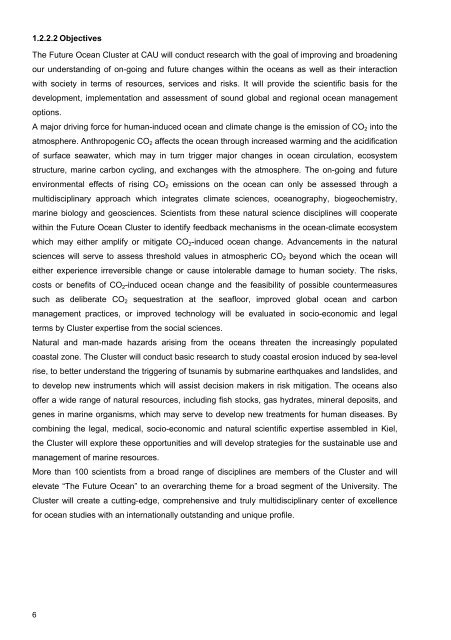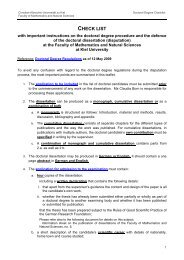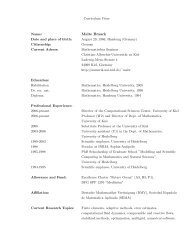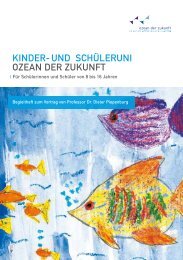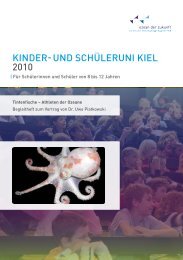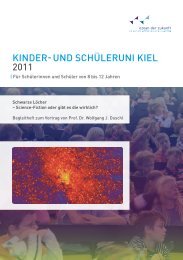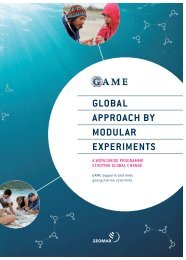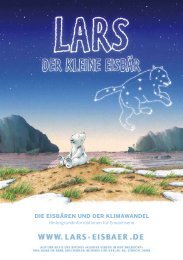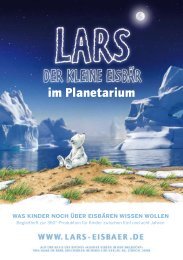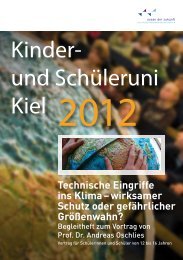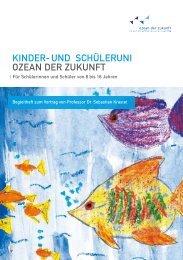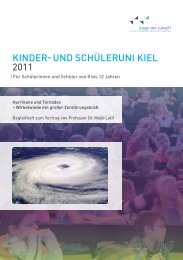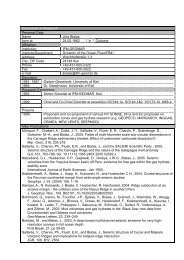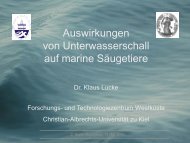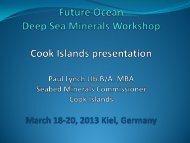Untitled - The Future Ocean
Untitled - The Future Ocean
Untitled - The Future Ocean
- No tags were found...
You also want an ePaper? Increase the reach of your titles
YUMPU automatically turns print PDFs into web optimized ePapers that Google loves.
1.2.2.2 Objectives<strong>The</strong> <strong>Future</strong> <strong>Ocean</strong> Cluster at CAU will conduct research with the goal of improving and broadeningour understanding of on-going and future changes within the oceans as well as their interactionwith society in terms of resources, services and risks. It will provide the scientific basis for thedevelopment, implementation and assessment of sound global and regional ocean managementoptions.A major driving force for human-induced ocean and climate change is the emission of CO 2 into theatmosphere. Anthropogenic CO 2 affects the ocean through increased warming and the acidificationof surface seawater, which may in turn trigger major changes in ocean circulation, ecosystemstructure, marine carbon cycling, and exchanges with the atmosphere. <strong>The</strong> on-going and futureenvironmental effects of rising CO 2 emissions on the ocean can only be assessed through amultidisciplinary approach which integrates climate sciences, oceanography, biogeochemistry,marine biology and geosciences. Scientists from these natural science disciplines will cooperatewithin the <strong>Future</strong> <strong>Ocean</strong> Cluster to identify feedback mechanisms in the ocean-climate ecosystemwhich may either amplify or mitigate CO 2 -induced ocean change. Advancements in the naturalsciences will serve to assess threshold values in atmospheric CO 2 beyond which the ocean willeither experience irreversible change or cause intolerable damage to human society. <strong>The</strong> risks,costs or benefits of CO 2 -induced ocean change and the feasibility of possible countermeasuressuch as deliberate CO 2 sequestration at the seafloor, improved global ocean and carbonmanagement practices, or improved technology will be evaluated in socio-economic and legalterms by Cluster expertise from the social sciences.Natural and man-made hazards arising from the oceans threaten the increasingly populatedcoastal zone. <strong>The</strong> Cluster will conduct basic research to study coastal erosion induced by sea-levelrise, to better understand the triggering of tsunamis by submarine earthquakes and landslides, andto develop new instruments which will assist decision makers in risk mitigation. <strong>The</strong> oceans alsooffer a wide range of natural resources, including fish stocks, gas hydrates, mineral deposits, andgenes in marine organisms, which may serve to develop new treatments for human diseases. Bycombining the legal, medical, socio-economic and natural scientific expertise assembled in Kiel,the Cluster will explore these opportunities and will develop strategies for the sustainable use andmanagement of marine resources.More than 100 scientists from a broad range of disciplines are members of the Cluster and willelevate “<strong>The</strong> <strong>Future</strong> <strong>Ocean</strong>” to an overarching theme for a broad segment of the University. <strong>The</strong>Cluster will create a cutting-edge, comprehensive and truly multidisciplinary center of excellencefor ocean studies with an internationally outstanding and unique profile.6


